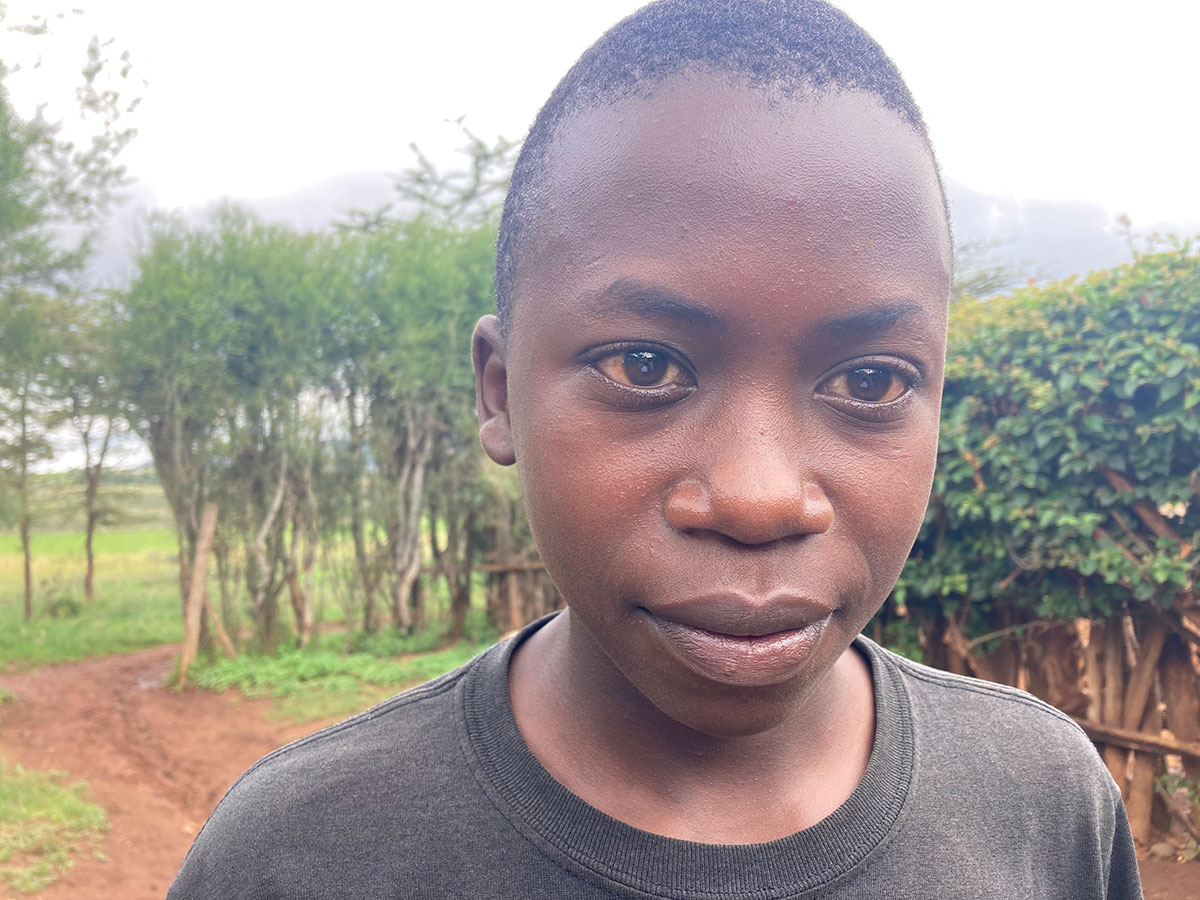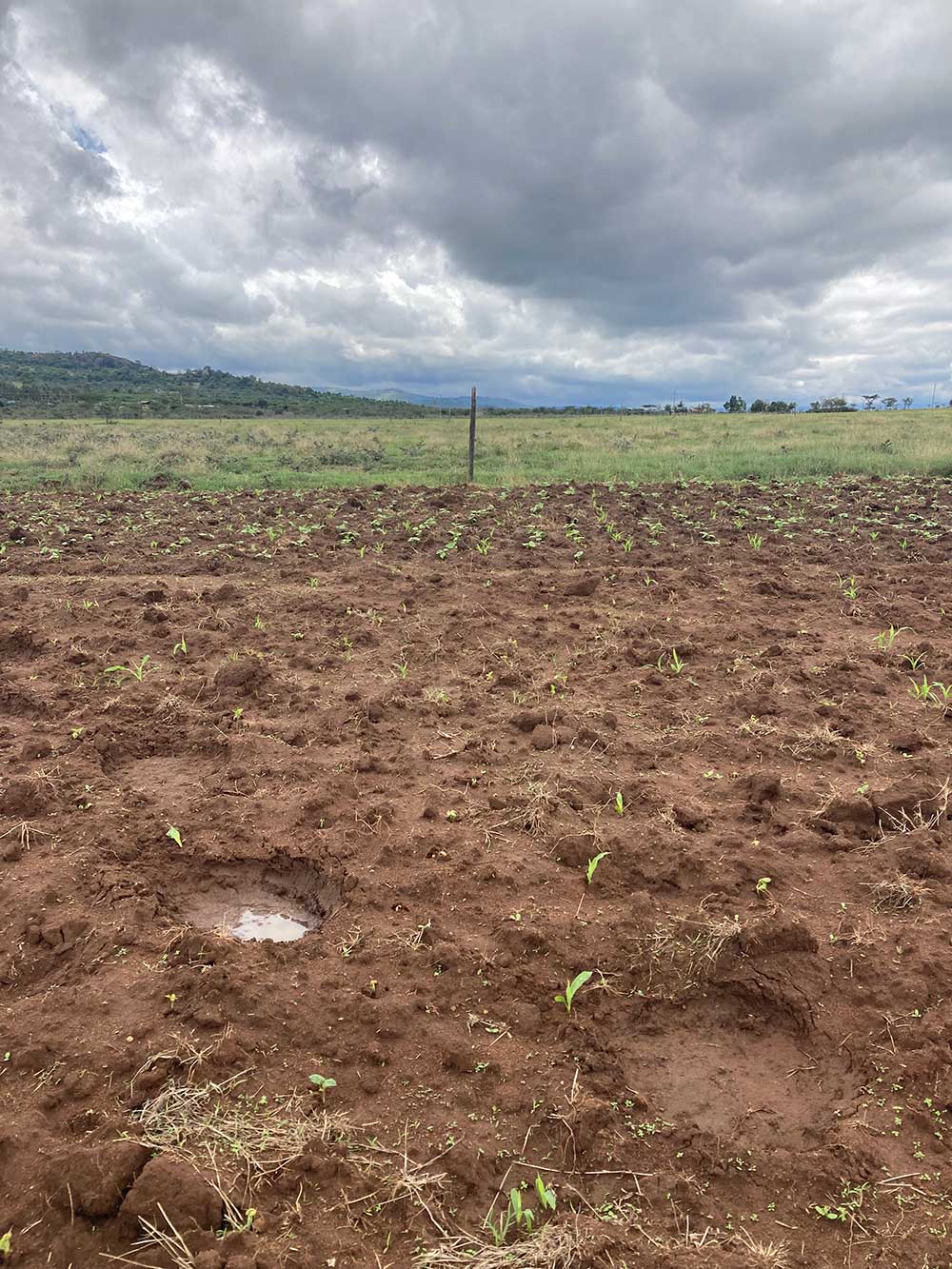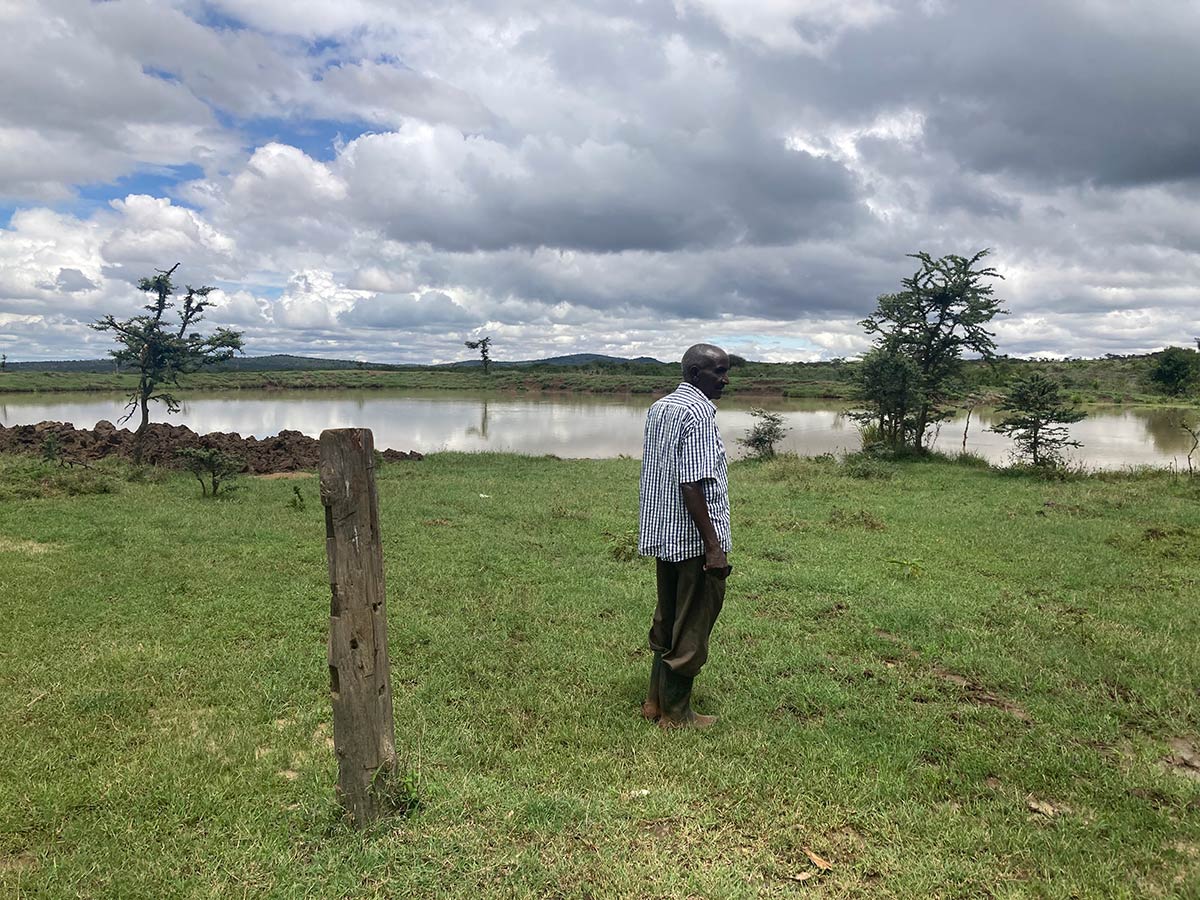For Regina Wambui and her community, King Charles’s visit to Kenya at the end of October was the last semblance of hope.
The king was coming to address the “painful aspects” of the history between the U.K. and its former East African colony.
“It matters greatly to me that I should deepen my own understanding of these wrongs, and that I meet some of those whose lives and communities were so grievously affected,” Charles said upon arrival.
Wambui hoped he would also meet with those whose lives and communities are currently suffering because of his soldiers.
Two and a half years ago, the British Army Training Unit in Kenya (BATUK) — of which Charles is the commander-in-chief — accidentally started a fire in the central Lolldaiga Hills. The fire lasted three days and destroyed more than 10,000 acres of land.
Wambui’s land, opposite the army’s $85-million training grounds, has been completely destroyed. All 10 of her cows died of smoke inhalation, she said. Once the fire started, elephants and lions ran rampant away from the base’s scorched earth, demolishing locals’ fences and farmland.
“I was strong before,” Wambui, 36, said. “But the BATUK have caused only destruction, and taken advantage.”
No matter how many times Wambui goes to the hospital, her eyes, and those of her four young children, remain swollen and glare red. “It looks like we use cocaine,” she said, blaming the smoke from the blaze that lingered for weeks.
 Regina Wambui’s 13-year-old son Allan suffers with red and swollen eyes. (Photo: Georgia Gee/OCCRP)
Regina Wambui’s 13-year-old son Allan suffers with red and swollen eyes. (Photo: Georgia Gee/OCCRP)
In March 2022, a Kenyan court ruled that people affected by the fire had the right to sue the British military, which had claimed “sovereign immunity” from legal action in the country.
Since that ruling, more than 7,000 claims have been filed in a lawsuit in Kenya against the British army from those allegedly experiencing health issues from the blaze in March 2021. Authorities are investigating those claims, but the African Centre for Corrective and Preventive Action (ACCPA), which represents the victims, says the process has been complicated needlessly.
“The British army is actually using every trick from the colonial rule book to try and not pay the Kenyan people compensation,” the ACCPA said in an open letter to the U.K. government last month.
Claimants’ medical records, reviewed by OCCRP, detail vision and respiratory issues allegedly due to prolonged exposure to smoke. Some residents said they hoped Charles’ trip to Kenya would be a watershed moment in resolving their claims
But the king never intended to visit Wambui’s community just outside of Nanyuki, where the U.K. base is.
“The fire was started accidentally and no local or community land was directly affected,” a U.K. government spokesperson told OCCRP, despite the claims submitted in court alleging damage to properties and the environment.
“Their Majesties’ visit is relatively short so we were limited to only two locations,” the spokesperson added.
The day before the king’s arrival, a group of 30 plaintiffs had traveled to Nairobi to draw attention to the blaze, alongside other alleged human rights abuses by the BATUK, including the murder of a woman in 2012. But their press conference was shut down by Kenyan police before it even began. Managerial staff at the private hotel told organizers the orders came “from above.”
“We are tired, tired, tired,” Wambui said.
Colonial Land
During the colonial period in the 1940s, a British man named Harry Hinde acquired the land of Lolldaiga Hills, which look toward Mount Kenya, the snow-capped second highest mountain in Africa.
The ranch and wildlife conservancy is home to a variety of wildlife, including endangered zebras. It was part of an area in north-central Kenya that became known as “the White Highlands,” due to European settlers taking over the land.
Charles was never going to give a formal apology on this trip for the dispossession of Kenyans during the colonial period, said Macharia Munene, professor of history and international relations at the United States International University in Nairobi.
“They aren’t going to condemn the entire system. If they do then they will be obligated to pay reparations,” he said. “For Charles to say that colonialism was evil is to negate the whole empire.”
Hinde’s land was first made available for the U.K. military in 2009 by his grandson, Robert Wells, through his company Lolldaiga Hills Limited, which is named along with BATUK as a respondent in the lawsuit.
A British media outlet found that between 2010 and 2016, Lolldaiga Hills received 1.2 million pounds from the U.K. military, which an army spokesperson said was compensation for use of its land. In November 2021, Wells sold most of the Lolldaiga ranch. He could not be reached for comment.
Each year, around 10,000 soldiers pass through the BATUK barracks, where a refurbished center was opened in January 2021.
Just two months after the opening, the fire started. The British claimed it was a military exercise that went wrong, citing the dry grass and high winds.
“If you’re a fire, those are perfect conditions to just spread rapidly,” said Jane Marriott, the U.K. High Commissioner at the time, promising a full investigation. “It certainly would not be set on fire deliberately.”
But the blaze was not completely out of the blue. A document obtained from the British Ministry of Defence through the Freedom of Information Act revealed that British soldiers had also caused five smaller fires at other training camps in Kenya in the month leading up to the Lolldaiga Hills blaze.
For one soldier, the fire was just another day on the base. “Caused a 4.5 K fire, killed an elephant and feel terrible about it but hey-ho, when in Rome,” the officer wrote on Snapchat.
In the surrounding villages, the hot winds were apocalyptic for days. “The smoke covered everything,” said Gabriel Ngata, 76. “There were constantly tears coming out our eyes.”
Last Monday, ahead of Charles’ visit, Ngata was part of the group that traveled over 100 miles to Nairobi from Nanyuki to talk about the fire. But he was told by police to not get out of the car once he arrived, and says he was trailed back home.
“That was meant to be a peaceful meeting,” he said. “We were very angry.”
The Kenyan police could not be reached for comment.
Ngata is a petitioner in the lawsuit filed against the British army and Lolldaiga Hills Limited by the ACCPA. The Kenya Wildlife Service and Kenya Forest Service are named as interested parties. The plaintiffs allege that “massive amounts of carbon dioxide, carbon monoxide and other toxic and poisonous fumes were emitted into the environment.”
A report commissioned a year after the fire by the company that owns the ranch, and paid for by the British Ministry of Defense, estimated that the landscape will take until approximately 2060 to recover. The impact on vegetation and endangered species was deemed “major.”
 Elephants, who lived in the conservation land, break down the fences into local’s land. Footprints can be seen in the farmland. (Photo: Georgia Gee/OCCRP)But since then, the process has been riddled with complications. Under a military treaty, the Intergovernmental Liaison Committee (IGLC) — staffed by officials from both countries and co-chaired by a British army brigadier — was appointed to scrutinize the claims. Last October, the committee published a notice in one of Kenya’s largest newspapers inviting people to submit claims.
Elephants, who lived in the conservation land, break down the fences into local’s land. Footprints can be seen in the farmland. (Photo: Georgia Gee/OCCRP)But since then, the process has been riddled with complications. Under a military treaty, the Intergovernmental Liaison Committee (IGLC) — staffed by officials from both countries and co-chaired by a British army brigadier — was appointed to scrutinize the claims. Last October, the committee published a notice in one of Kenya’s largest newspapers inviting people to submit claims.
But in December, as lawyers attempted to submit the forms for compensation via email, their messages kept bouncing back.
Then, the IGLC added more caveats. After originally stating they just needed “accompanying evidence of identification and the damage suffered,” they later specified that victims had to provide evidence of health problems through detailed medical reports, as well as the GPS coordinates of their homes and land.
For the low-income communities surrounding Nanyuki, this is “impossible,” said Kelvin Kubai, the lawyer at the ACCPA who is leading the court case. “They are hiding behind unconstitutional procedural technicalities to evade responsibility.”
The nearest hospital to Wambui’s village is 4 kilometers away, and the family has no form of transport. Neither she nor anyone she knows own a smartphone, and they do not have access to the internet.
“We fully appreciate the need for a prompt resolution of this issue,” a U.K. government spokesperson told OCCRP, citing the deadline for evidence as November 1. “Proper and fair assessment can only be done once all claims with supporting evidence have been received.”
The APPC said they invited BATUK and IGLC to visit victims on multiple occasions, but they never came. However, British army vehicles are a frequent sighting on the roads around Nanyuki.
‘Massive cover up’
The 2021 fire was only the latest incident pitting the British military against locals –– and the lack of compensation has continued a pattern of impunity.
In August, the Kenyan government announced it would begin investigating alleged British army crimes in Nanyuki over the last three decades, including the murder of a woman by a British soldier.
In 2012, the body of Agnes Wanjiru, a 21-year-old mother, was discovered in a septic tank of a hotel with stab wounds. Nearly a decade later, The Times reported that a soldier had confessed to his comrades to killing her, and showed them her body. He has not been charged.
Wanjiru’s niece, Esther Njoki, 19, was preparing to speak about her aunt at the press conference before Charles’s arrival, alongside victims of the fire, before it was shut down. “It’s a massive, massive cover up,” Njoki told OCCRP after being kicked out of the hotel. “It has been 11 years and we are still waiting. We expected Charles to say something.”
“This case is a priority for the U.K. Government,” a U.K. government spokesperson told OCCRP. “To protect the integrity of that investigation and in the interests of justice, it would be inappropriate to comment further.”
 Gabriel Ngata in front of the murky water they use to drink and wash. (Photo: Georgia Gee/OCCRP)
Gabriel Ngata in front of the murky water they use to drink and wash. (Photo: Georgia Gee/OCCRP)
Back in Nanyuki, residents believe the fire is responsible for around a hundred deaths.
The British army also recently admitted to using white phosphorus, an extremely toxic chemical, on the training grounds.
Both inside and outside her home, Wambui constantly fears for her children.
The sound of the army’s mortar rounds terrifies them and shakes the ground. On the long walk to school, wildlife roam free after destroying fences to get away from the fire. Most significantly, ever since the blaze, they say the river running from the Lolldaiga hills — and the only place residents can get their water — has been dark murky brown.
“I am worried about me and my kids drinking the water,” Wambui said. “But what can I do?



